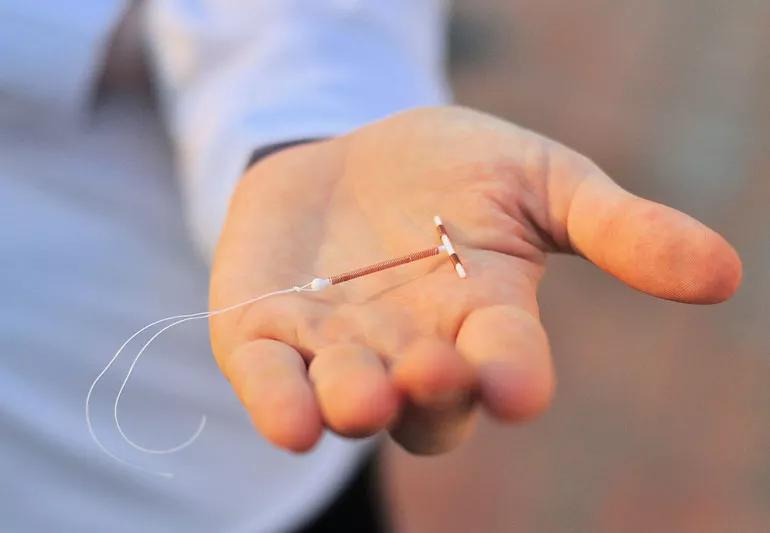The short answer from an Ob/Gyn

Image content: This image is available to view online.
View image online (https://assets.clevelandclinic.org/transform/770b67cb-c1ff-4aec-b384-1a6fd5655116/IUD-478967467-770x553-1_jpg)
woman holding IUD
A: It’s easy to stop taking most forms of birth control, but intrauterine devices (IUDs) and hormonal implants are another story. One study found that only 1 in 5 women is able to successfully remove her own IUD; instead, you should make an appointment with a healthcare professional.
Advertisement
Cleveland Clinic is a non-profit academic medical center. Advertising on our site helps support our mission. We do not endorse non-Cleveland Clinic products or services. Policy
In-office IUD removal is typically only a minutes-long process: You’ll lie on your back with your legs spread apart and your feet in stirrups, as when you had it inserted. Your doctor will use a speculum to grasp the IUD string and gently pull it out. The “arms” of the T-shaped device fold up as it’s removed.
And while trying to remove your IUD at home is unlikely to be seriously harmful, the primary risk is that it simply won’t work.
Oftentimes, women who try to take out their own IUD (by pulling on the device’s string themselves) are able to dislodge it but not remove it. When this happens, your IUD becomes improperly positioned inside you, which can be both crampy and painful — and means your IUD isn’t well-placed to do the job of preventing pregnancy.
When this happens, a non-urgent issue becomes time-sensitive, and you’ll end up needing to see a healthcare provider to have your IUD removed, anyway.
–Ob/Gyn Ashley Brant, DO
Advertisement

Sign up for our Health Essentials emails for expert guidance on nutrition, fitness, sleep, skin care and more.
Learn more about our editorial process.
Advertisement
The Yuzpe regimen is less effective than other forms of emergency contraceptives, and it’s associated with more side effects
Both are about equally effective when used properly — IUDs are long-lasting and don’t require you to think about them
Birth control medications are more than 99% effective, but only when used properly
Today’s birth control pills don’t usually cause depression — but hormones affect everyone differently
No, you can’t prevent pregnancy by douching after sex, having sex standing up or having sex only at the ‘safe’ time
IUDs can make your period lighter, heavier, irregular or stop it completely
Birth control gel is simple to use and an effective method for preventing pregnancy
The scenarios vary based on how many pills you’ve missed and whether you take a combination pill or progestin-only pill
Although it could be used as a moisturizer, this new trend is not recommended
Communicating clear limits helps protect your time, energy and emotional well-being
High cholesterol can be genetic, but testing and treatment can lower your heart disease risk